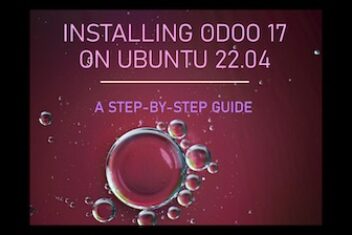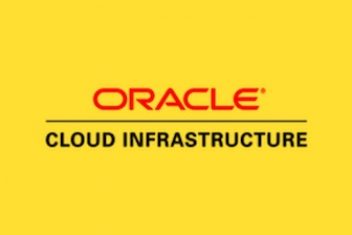By Ethan Eva – In the real estate sector, the Metaverse is a digital universe in which it is possible to buy land, make construction and visit a building for professional use, and develop the digital world of brands. Following this, metaverse development has gained momentum due to the launch of several blockchain-driven applications that have decentralized virtual worlds – with significant implications for the real estate industry.
Accessibility and decentralization are the main assets of the Metaverse for real estate.
Users could visit and explore virtual buildings with augmented or virtual reality, choose a location, buy or rent the space, and even make changes. Building owners could also promote their virtual properties in innovative ways by offering immersive experiences to potential customers.
Here are seven ways the Metaverse is transforming the real estate industry.
Read: Best Websites and Apps to Buy-And-Sell Real Estate
1. THE TOKENIZATION OF CONDOMINIUMS
Indeed, the co-ownerships are already divided according to the surface that each one has and the rights and duties incumbent on each party. This could be coded, and everyone’s actions could be certified on the blockchain.
Let us assume that each co-owner has several tokens relative to what he owns in the co-ownership. At each intervention, he is deducted from what he owes. Each co-owner would, therefore, also have rights related to their tokens. For example, to propose areas for improvement, which the parties would vote on according to rules predefined by the code. Everything would be automated.
If a co-owner is not current on his payment, he could have sanctions related to his rights. We could restrict his access to certain partnerships made with local merchants, for example, or suspend his right to vote for so-called “simple” decisions.
One could also consider lowering certain rights and duties to the level of the tenants most concerned by life in the condominium. Neighborhood nuisances could then impact the tenant directly. The latter could get involved in day-to-day decisions and therefore feel more concerned and empowered concerning the co-ownership.
Read: Best interior design apps for Android
2. COLIVING AND COWORKING COMMUNITIES
When speaking of community life, we think of the rise of coliving (and coworking). We very quickly see the great interest, even the potential impact, of these technologies for the communities in question. It could be of two kinds:
The community could have an NFT as an active or former member who would give it user rights: access to activities (tasting, exhibition, private parties in one of the spaces, etc.).
One could even imagine gamifying the community and that each action gives it access to NFTs, providing it with more power or rights. For example, the organization or participation in events, the advancement of expenses for the community, the provision of assistance to one or more members, etc.
The next step could be to create coworking or coliving communities, in which power would be decentralized and belong to those who own tokens, with shared decision-making power based on each person’s share, as exists today.
3. TENANTS WHO BECOME OWNERS
We see, in particular, attempts to democratize the LOA (Letter of Administration) in real estate or even institutions that offer prices during the resale of their building on the cutting, according to the seniority of the tenants. This type of experience could be imagined from the start, even before the construction or rehabilitation of housing. Each rent paid would give tokens which, over time, would make the tenant owner of all or part of his accommodation.
4. A SOVEREIGN REAL ESTATE NETWORK
Let’s get out of B2C to go towards B2B. Today, some networks are developing at high speed. And we see more and more elements to differentiate themselves: remuneration, training, tools, ecological impact, proximity, values, access to a pro metaverse, etc.
Like a cooperative society, but with NFT compensation for the most active members, one can imagine unlocking tokens with each sale. The best would then have more power to improve the network, and each member would have the same interests as the group and a shared long-term vision.
5. MLS (Multiple Listing Service)
Among the most apparent speed bumps are sovereignty and the fact that some players are reluctant to share the proper mandates, knowing they will issue them themselves. But if each mandate sharing or each inter-cabinet transaction were to remunerate real estate professionals in tokens? Those who would play the game the most and bring in the best deals would then benefit the most from the growth of the network, and we would settle the two stones in the users’ shoes at once.
One could imagine substantially similar processes for software, real estate portals, etc.
6. RENTING CORPORATE VIRTUAL SPACES
It is also possible that metaverses are being used to create virtual playgrounds, which could impact the commercial real estate industry. For example, companies could rent these virtual spaces to organize events, conferences, or training seminars.
Read: How to Write an Effective Creative Brief for Graphic Designers
7. TOWARDS A FULL FUNCTIONING ECONOMY IN THE METAVERSE
Beyond the financial incentives, buying a virtual property is equivalent to affording a fully functional economic space in the making. And it is precisely for these reasons that Metaverse Real Estate has quickly positioned itself in this market with enormous potential.
The aforementioned metaverse real-estate growth opportunities alongside our state-of-the-art metaverse solutions, like dedicated Metaverse app developers delivering fully layered functionality, including APIs, ecosystem tools, and more, ensure exceptional user experiences across Metaverse platforms for businesses looking for metaverse development services.
If you like the content, we would appreciate your support by buying us a coffee. Thank you so much for your visit and support.



